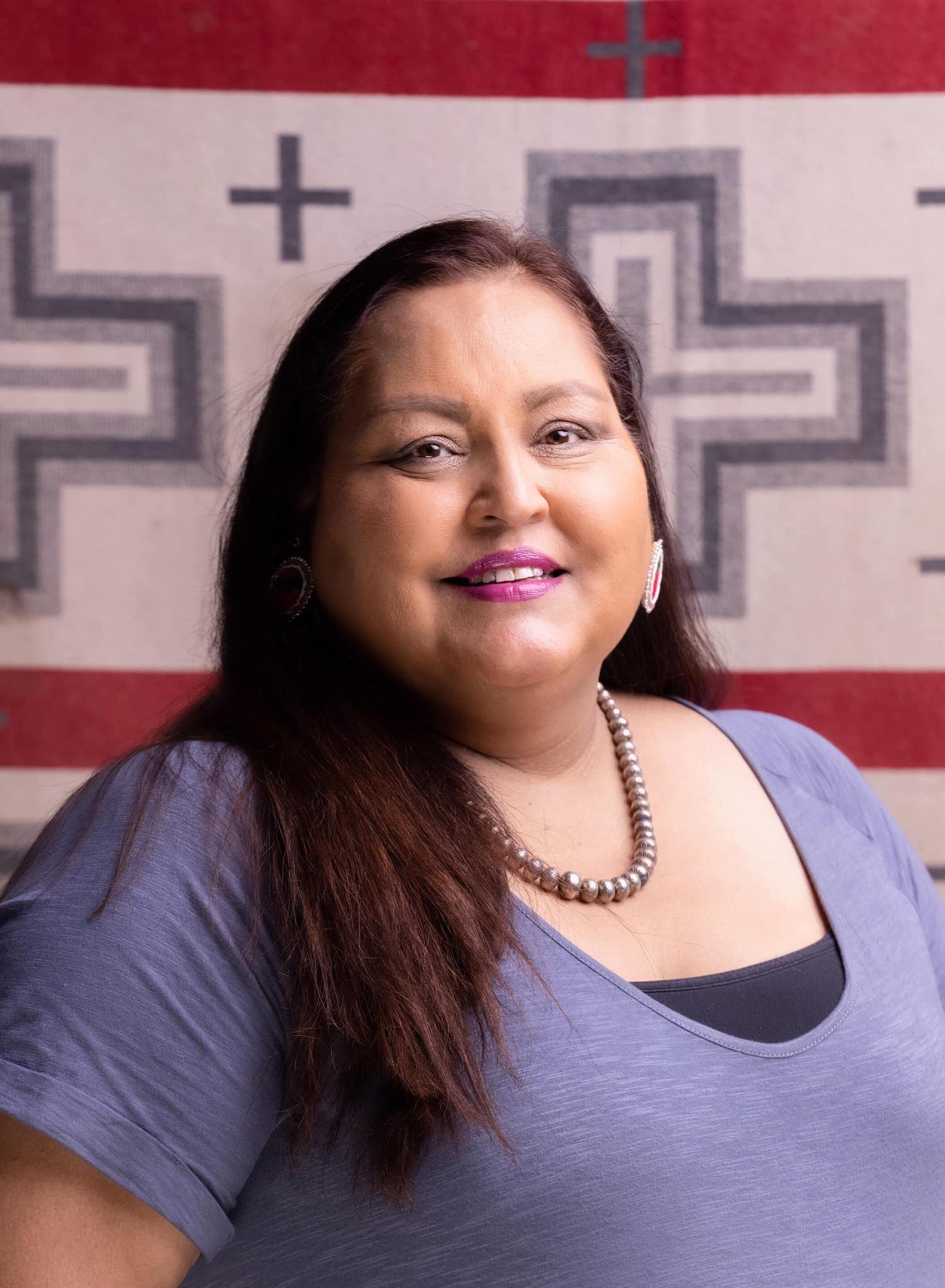
Eiteljorg Museum Appoints Award-Winning Artist Monica Raphael as Curator
#announcement #Appointed curator #Appointment #curatorial #Eiteljorg Museum #Monica Raphael #museumMonica Raphael, an accomplished artist of Anishinaabe and Sičáŋğu Lakota heritage, has assumed a significant role as the Thomas G. and Susan C. Hoback curator at the Eiteljorg Museum of American Indians and Western Art. In this role, she will focus on Great Lakes Native cultures and community engagement.
The Eiteljorg Museum is delighted to introduce Monica Raphael, a fifth-generation quillwork artist renowned for her expertise in flora and fauna designs. Her remarkable pieces are part of collections at esteemed institutions like the Smithsonian Institution National Museum of the American Indian, the Hood Museum of Art at Dartmouth College, and the Eiteljorg Museum. Furthermore, she boasts a distinguished background in creating and implementing cultural, educational, and human services programs within tribal communities, in addition to her experience as an instructor and guest lecturer.
Nurturing Native Cultures and Community Engagement
Monica Raphael’s primary mission at the Eiteljorg Museum is to foster collaborative relationships with artists and tribes, and to organize public events. Her special focus will be on the Native cultures of the Great Lakes region, reflecting her own cultural background.
According to Kathryn Haigh, President and CEO of the Eiteljorg Museum, “Monica’s past association with the Eiteljorg already has made an impact on the community we serve, so we are thrilled that she has joined the Eiteljorg team as the Hoback curator.”
Until recently, Monica Raphael was a self-employed artist based in southwest Oklahoma, where she created exquisite quillwork, beadwork jewelry, and ribbonwork clothing. Her artistic talents have earned her accolades at Native art markets such as the SWAIA Santa Fe Indian Market, Heard Indian Market in Phoenix, and the Eiteljorg Museum Indian Market and Festival. Her work has also been featured in magazines celebrating Native American arts.
Raphael expresses her excitement about joining the Eiteljorg team, stating, “I am thrilled to bring my creativity and knowledge of Great Lakes Native American cultures, languages, philosophies, teachings, and ways of knowing to the Eiteljorg, museum visitors, and the greater Indianapolis community.”
A Life Committed to Culture and Community
As an enrolled member of the Grand Traverse Band of Ottawa and Chippewa Indians, Monica Raphael grew up in Michigan, later residing in Suttons Bay, Michigan. Her understanding of cultural dynamics played a crucial role during her tenure with the Grand Traverse Band from 2002-2012, where she developed a behavioral health program that aimed to increase local high school graduation rates among Native youth.
During this time, she also secured federal grant support for the program and managed a youth dance company named Mino Bimaadziwin, where she served as the artistic director, choreographer, and costume designer. Under her guidance, four students won champion titles in hoop dance, and the program’s success led to its replication in a Hopi community in the Southwest.
After dedicating 25 years to instigating data-driven change in tribal communities, Raphael decided to fulfill her lifelong dream of becoming a full-time artist in 2018. In 2021, she was honored with the prestigious First Peoples Fund Cultural Capital Fellowship and the Native Arts and Cultures Foundation LIFT Award. Her journey as an artist brought her to the Eiteljorg multiple times for Indian Market and Festival and an artist residency, eventually culminating in her current role as the Hoback curator of Great Lakes Native cultures and community engagement.
Bridging Art, Culture, and Public Engagement
Monica Raphael’s quillwork and beadwork creations are well-known among enthusiasts of the Eiteljorg Museum. One of her bracelets, Nagamo “She Sings”, is currently on display in the museum’s new Native American galleries. Another notable piece, a tasseled birch bark bag adorned with a quillwork scissortail design named Nuh-Mah-Nuh Daawina Akiin (Homelands of the Comanche People), served as the signature image at last June’s Eiteljorg Indian Market and Festival, prominently featured in promotional materials.
According to Alisa Nordholt-Dean, Vice President for Public Programs and Beeler Family Director of Education at the Eiteljorg, “We are so excited to have Monica on staff at the Eiteljorg. Her cultural knowledge, artistic expertise, and skill at engaging the public will help the Eiteljorg Museum expand its cultural offerings and establish or build on relationships with tribes in the Great Lakes region and the tribes who were forcibly removed from Indiana.”
A Commitment to Preserving Native Arts
The Eiteljorg Museum has long been committed to the preservation and celebration of Great Lakes Native arts and cultures. Through a grant from Lilly Endowment Inc. in 2019, the museum acquired over 400 artworks and cultural items, significantly enriching its collections in this category. These acquisitions encompass a wide range of items, including beadwork, basketry, carvings, mixed media, and more, some of which are currently on display in the museum’s new Native American Galleries.
Monica Raphael, who recently moved from Oklahoma to Indianapolis, commenced her new role as the Thomas G. and Susan C. Hoback curator of Great Lakes Native cultures and community engagement in September. The public will have the opportunity to meet her at upcoming events, including a gallery tour on November 3 and a quill stitch workshop on November 17.
Monica Raphael succeeds the previous Hoback curator, Scott Shoemaker, Ph.D., who left the museum to join the Margaret A. Cargill Philanthropies in Eden Prairie, Minnesota. The position is endowed by Thomas G. and Susan C. Hoback, both longstanding supporters of the Eiteljorg Museum, with Thomas Hoback having previously chaired the Eiteljorg Board of Directors.
About the Eiteljorg Museum
For 34 years, the Eiteljorg Museum has been a cultural pillar in downtown Indianapolis’ scenic White River State Park. It strives to foster an appreciation and understanding of the arts, histories, and cultures of Native peoples of North America and the diverse peoples of the American West through compelling stories. Located on the Central Canal at 500 West Washington St., the Eiteljorg operates as a 501c3 nonprofit organization.







